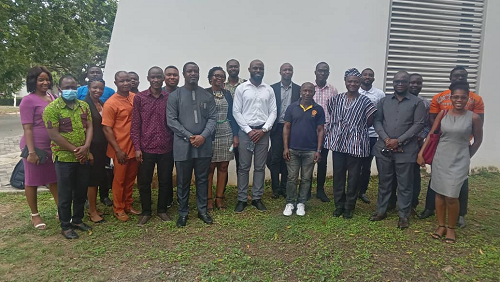
Ghana needs long-term energy efficiency policies - Dr Kofi Adom
Energy Economist, Dr Philip Kofi Adom, wants the government to implement long-term energy efficiency policies to help address the country’s energy inefficiencies.
He said there was a need to implement strong policies that guide consumers to effectively manage energy resources, as well policies which would put the country on the global front as an energy-efficient nation.
For him, ensuring stricter implementation of stronger energy efficient policies would help to reverse energy inefficiency situation, pointing out that becoming energy efficient “requires that we begin to have some kind of a rethink; some kind of a reorientation of the way that we even accept innovations.”
Dr Adom, who is also a Senior Lecturer at the Ghana Institute of Management and Public Administration (GIMPA), was speaking at a forum organised by the Environmental and Natural Resource Research Initiative (ENRRI) on November 25, 2021.
ENRRI – EfD Ghana
The workshop, which brought together players in the energy sector, researchers, civil society organisations, students, academics and policy makers, was on the theme: “Sustaining Energy-Efficiency Efforts.”
The Environment and Natural Resource Research Initiative (ENRRI – EfD Ghana) is one of the 15 centres under the Environment for Development (EfD) Initiative, which contributes to the sustainable management of natural resources through capacity development, policy-relevant research and policy engagement.
ENRRI – EfD Ghana brings together accomplished researchers with varied expertise in environmental economics from Ghana and elsewhere to conduct evidence-based research, and advise government and development partners on policy options for managing the environment and scarce natural resources.
For Dr Adom, to get to an energy efficient state required all hands on board, stressing that “Improving energy efficiency somehow indirectly transfer income to the poor” and that energy efficiency policies could be treated as a pro-poor policies.
“Improving energy-efficiency somehow indirectly transfers income to the poor; so if we want to elevate income for the poor, we should see it as a pro-poor policy – just like we are now providing Free Senior High Schools. Energy-efficiency is an investment; you need money and there are financial constraints. So, what is government doing in that regard to make sure the financial constraints imposed on people are actually lifted? And I think if we begin to address some of these issues, then we can achieve that sustainable energy-efficiency status,” he said.
He explained that the country needed to start creating awareness on energy efficiency, noting that “Communication to the people should be clear, there is a need to make them understand the benefits they will derive in monetary terms in terms of conserving energy.”
Dr Adom was of the view that the country as a first step in achieving energy efficient state ought to empower regulatory bodies such as the Energy Commission to enforce the implementation of the country’s energy efficiency policies.
He also explained that achieving and sustaining energy efficiency policies required strong financial backings, hence the need for the government to show financial commitment in that regard.
“One thing we should also note as a state is that once we achieve it, we need to maintain it. We should not think that it is a permanent state once we are energy-efficient. Hopefully, we will get there; and once we get there, we still have to make sure we maintain it. This means that we need to have a more robust system, a system that can never be compromised; and if someone compromises the standards, the law has to be applied to the letter,” he explained.
Dr Adom said Ghana’s refrigerator energy efficiency project, for instance, could have yielded a lot of results if the country had sustained it after the funding for the project ended.
The Director of ENRRI – EfD Ghana, Professor Wisdom Akpalu, said ENRRI – EfD Ghana would continue to research into areas that could influence policy to better the lives of the citizenry.
He said ENRRI – EfD Ghana since its establishment has researched into many topical areas, including fisheries, forestry, economy and energy, all aimed at providing better alternatives in the management of the country’s sectors and resources.
Prof. Akpalu, who is also the Dean of the School of Graduate Studies of GIMPA, said ENRRI – EfD Ghana as a research-led organisation, would continue to engage stakeholders and industry players on topical issues that affect the lives of the ordinary Ghanaian.
